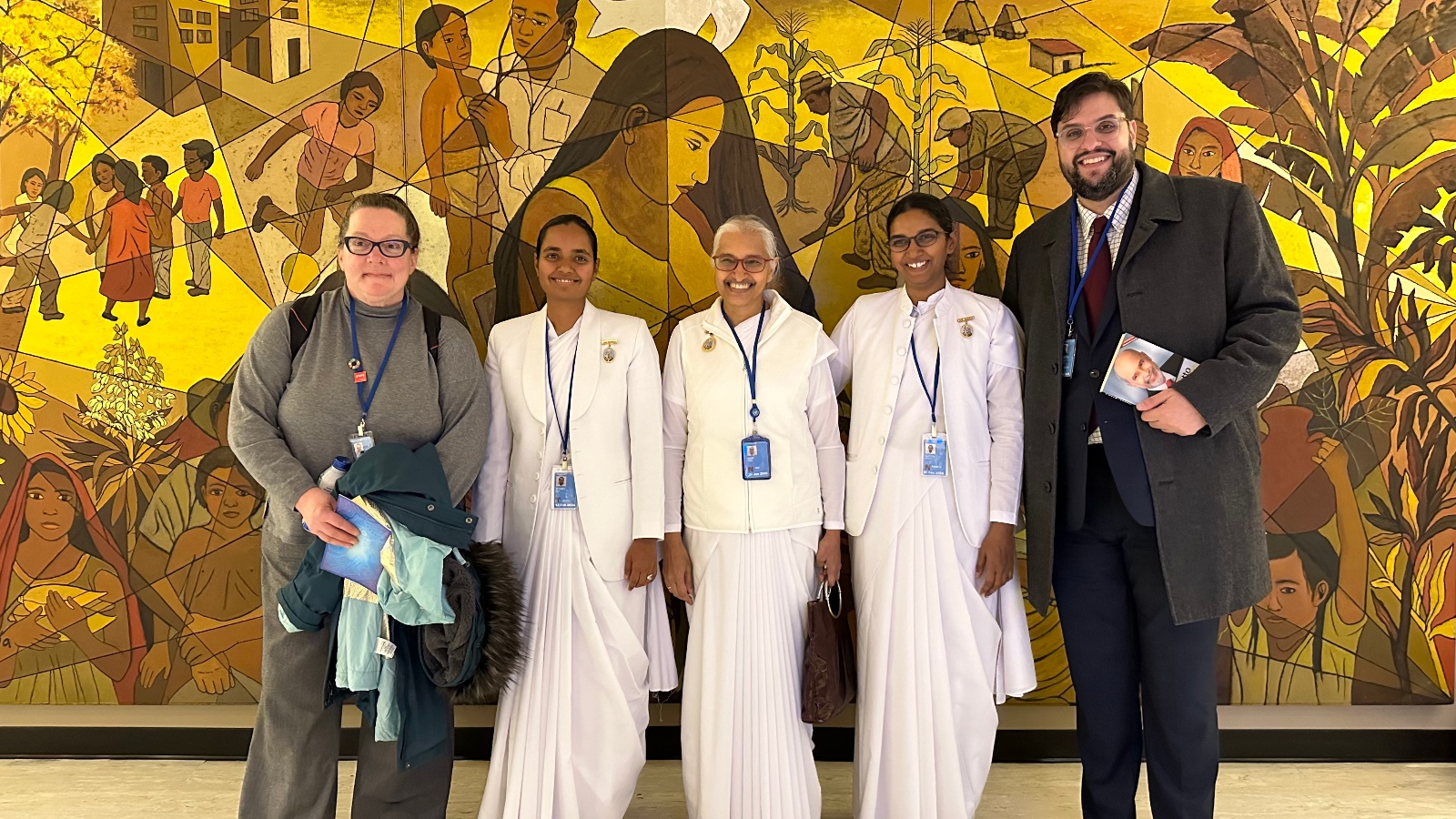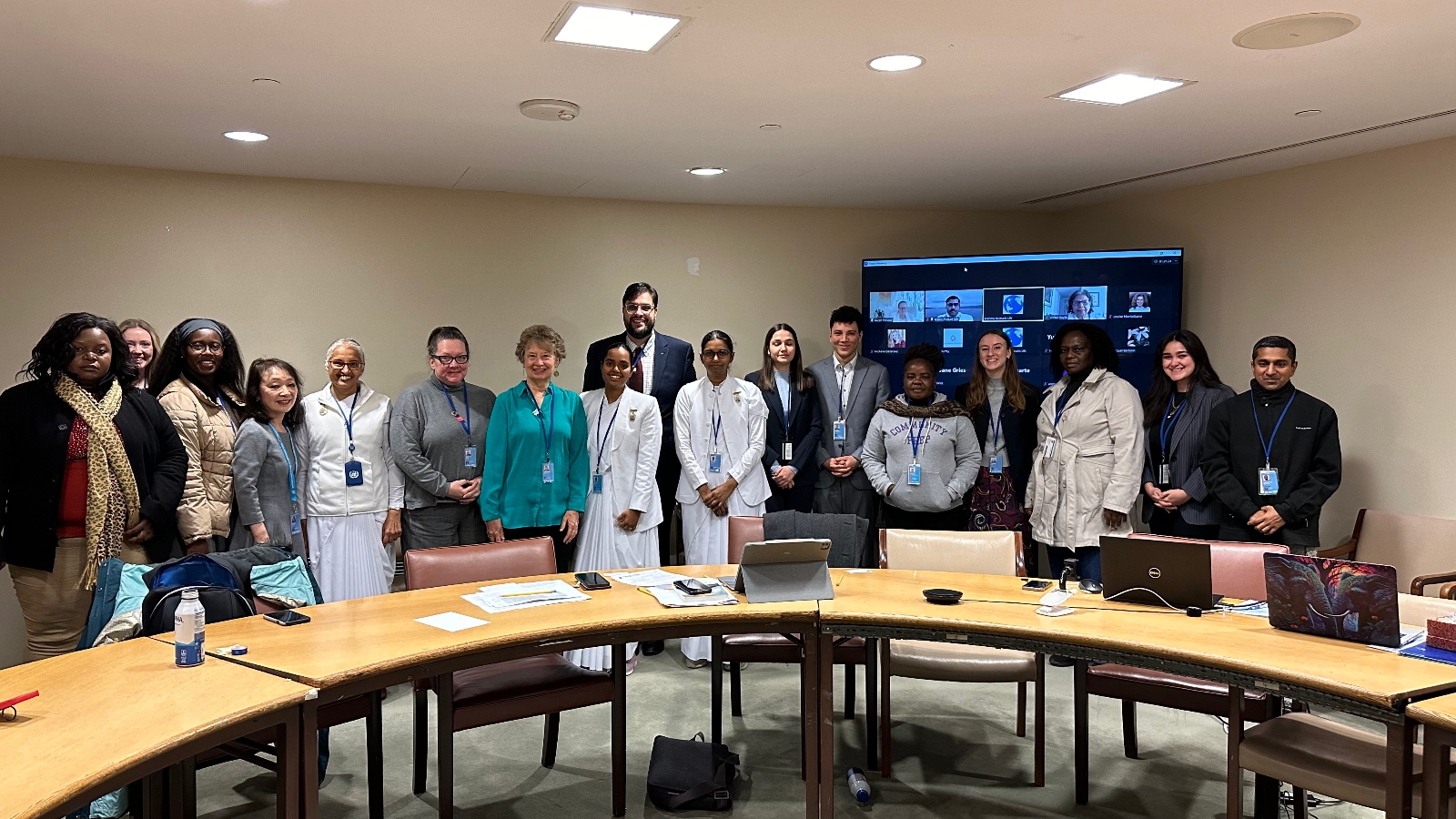
8th February 2024, UN Headquarters New York, CSocD62 Side Event organized by Brahma Kumaris World Spiritual University.
This panel discussion explored how policies focused on human dignity, inherent self-worth, strengthening the individual and the community are essential in overcoming poverty and achieving the UN's 2030 Agenda for Sustainable Development. Key takeaways include:
Dignity as a Core Value: Dignity is not simply an ideal but a fundamental human right. Restoring it requires poverty-alleviation approaches that acknowledge individuals' inherent worth and provide basic support, ensuring everyone feels valued and has the best chance to realize their true potential.
Individual Transformation Is Key: Lasting social change begins with empowering individuals. Policies should prioritize fostering self-worth, respect for others, and a sense of agency to break cycles of dependency.
A Holistic Approach: Sustainable social change necessitates a move beyond top-down policymaking towards collaboration and grassroots initiatives. The Rajrishi Villages Project of the Brahma Kumaris, and similar initiatives of the Legion of Good Will and ATD Fourth World, offer models for this, emphasizing the power of relationships and community-led solutions.
 The Importance of Inner Transformation: True dignity means enabling both individuals and communities to reach their full potential. This requires addressing inner attitudes and beliefs alongside external structures. Meditation and self-reflection play a crucial role in transforming limiting mindsets and fostering a sense of purpose driven by small experiences of positive possibilities.
The Importance of Inner Transformation: True dignity means enabling both individuals and communities to reach their full potential. This requires addressing inner attitudes and beliefs alongside external structures. Meditation and self-reflection play a crucial role in transforming limiting mindsets and fostering a sense of purpose driven by small experiences of positive possibilities.
Technology as an Amplifying Tool: Technological innovations can amplify efforts but must be inclusive and accessible. Policies should promote digital literacy, ensuring technology serves human dignity rather than diminishes it. Initiatives like the Digital Wellness program empower young people to use technology for social good while staying mindful of its potential harms.
Key Actions for Policymakers
- Prioritize Participatory Approaches: Involve those directly affected by poverty in designing and implementing solutions. Foster ownership and accountability.
- Collaborate with Grassroots Organizations: They provide invaluable insights and community connections for effective policy design.
- Invest in policies that promote inner transformation of people alongside economic support for lasting sustainable impact.
This panel highlighted that dignity lies at the heart of lasting social development. True progress depends on policies that foster empowerment, unity of purpose, and tools for both inner and outer transformation. Spiritual approaches, focusing on unity and compassion, transcend religious boundaries; they inspire positive values and motivate people to collaborate for the common good.
For more information about the 62nd Commission for Social Development (CSocD62), please visit: https://social.desa.un.org/csocd/62nd.
Source: Brahma Kumaris World Spiritual University
 Welcome to the United Nations
Welcome to the United Nations